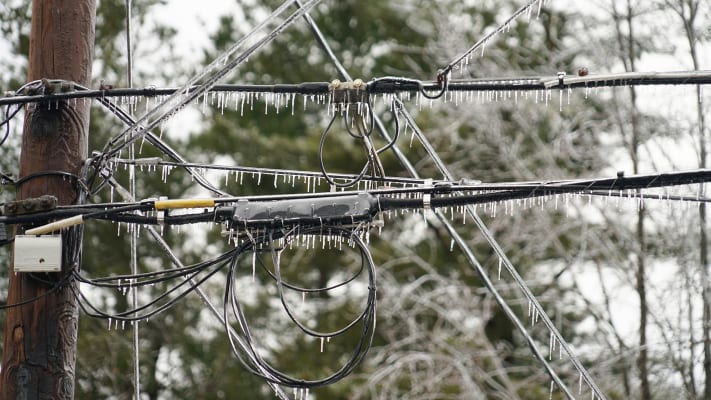If you don’t have a business contingency plan for when the power goes out, it’s important to develop one as soon as possible. When it comes to power outages, it is not a question of if but when? And the odds are that the power is more likely to go out in winter, which is where we’ll be for the next three months. We’re going to avoid too many references to Game of Thrones, but winter is here, which means the likelihood of an outage goes up.
But Why Does the Power Go Out More in the First Place?
This post from National Geographic does a good job of illustrating just how winter weather can cause power outages. Some of the reasons might be obvious. Winter weather often features storms that have high winds. Those winds can bring down tree branches, tree branches themselves, or telephone poles, which could cause downed power lines. Accumulating snow and ice from a storm can weigh down tree branches and cause them to fall onto power lines as well.
Another common cause is the extreme cold. There is a range where the components of an electrical system work best. If the weather gets too cold or hot or humidity levels go beyond the range, the electrical system will not be as efficient and those moving electrical components will need to work just a little harder to achieve the same result as it would on a more favorable day. It doesn’t help that our infrastructure is aging, making it more difficult for our electrical system to respond to extreme weather occurrences.
Moreover, tree roots are another issue. Even if tree branches don’t fall and disrupt power lines, ice can accumulate along tree roots, which may damage underground power lines. Wind can rock tree roots back and forth, which may affect power lines as well. It’s important to keep in mind that the cold temperatures cause power lines to become stiffer. Small animals looking for warmth can disrupt electrical systems as well.
Finally, it’s important to keep in mind that times of extreme temperatures usually equal increased customer demand. Electric heaters and heating pumps are run more often for comfort heating and other applications. Utility companies may not be able to keep up with demand in the event of a particular extreme event, making it more likely that an outage could occur. This is why it is very important for all businesses and organizations to have a backup plan just in case the worst does occur.
